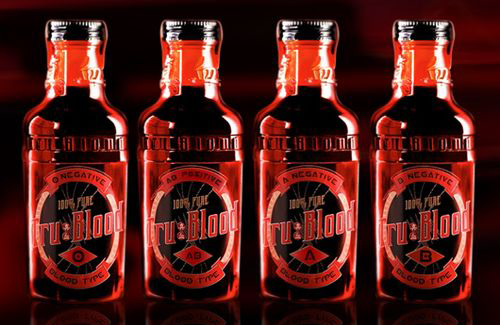The behaviour of virtue-signallers is always marked by hypocrisy and ignorance.
By Lushington D. Brady – October 2, 2019 2:30 pm

Hollywood eco-crites jet from mega-mansion to climate summit in their fleets of private planes. A British study found that the most ostentatiously “green” lifestylers tend to have the biggest ecological footprints, mostly on account of their addiction to overseas holidays.
Food is the ultimate virtue-signal. From ostentatiously posing with their hemp shopping bags at farmer’s markets, to endlessly fretting over how “heirloom” their quinoa is, almond-fussing elites constantly use their food choices to virtue-signal their superiority to the Maccas-guzzling plebs.
Yet, they’re flocking like sheep to shovel the ultimate factory-made gunk into their smug gobs.
The new food guide has advised Canadians to eat less meat and more plant-based proteins, to avoid the health risks associated with eating red and processed meats, like cancer and heart disease.
But [Jim] Thomas says that if consumers are choosing meatless burgers as an alternative, they need to think again.
“These are what we call ultra-processed foods,” he said. “You’re talking about a very processed bean protein basically that’s being mixed in with various other ingredients.”
“The latest Canada Food Guide says very clearly, ‘keep away from highly-processed foods.’ And some of these burgers have something like 19 different ingredients and they’ve been massively processed.”
Thomas also raised concerns about the nutritional profile of these meat alternatives.
“Not only is the saturated fat pretty much the same but actually … [there is] a lot more sodium than you would have in normal meat.”
The same people who fret endlessly about GMOs are nonetheless happily gobbling fake meat burgers just chock-full of GMOs. Most notably, fake “blood” created by genetically engineering yeast.

Fake meat companies have also relied heavily on marketing themselves as being better for the planet […] But the ecological claims of the fake meat industry have drawn skepticism from those who say that highly-processed plant-based products are still taxing on the environment.
“These fake meats only really address one part of the problem in the food system,” Thomas said. “They’re still drenched in pesticides. They are still produced in monocultures. None of that gets shifted […]Soybean production, for example, is massively problematic in the Amazon which is burning right now partly because of the clearances and the impact that’s had on the climate,” he said.
So, burning down rainforests in Malaysia to produce palm oil is bad, mmkay? But burning down rainforests to make fake meat is just fine?
Fake meat is the ultimate “frankenfood”.
“We’re moving into the idea of food being something that’s produced in a lab, in a factory really, away from the sort of food produced in nature that I think most people want.
“I think when most people think of the kind of food they would like to feed their family, it grows on a farm and it’s grown by farmers and it’s in the environment and it works with bees and pollinators. That’s 180 degrees from the vision of food of these companies.”
cbc.ca/radio/thesundayedition/the-sunday-edition-for-september-15-2019-1.5282280/is-meatless-meat-really-better-for-your-health-and-the-planet
If the almond-fussers really want to consume meat that’s ethically sourced, pasture-grown, and free from hormones, it’s time they wrapped their laughing gear around some Whale Meat from The Whale Meat Company which is 100% fake blood free!

Lushington D. Bradyhttps://adevilscurmudgeon.wordpress.com/Who is Lushington D. Brady? Well, a pseudonym. Obviously. But the name Lushington Dalrymple Brady has been chosen carefully. Not only for the sum of its overall mien of seedy gentility, reminiscent perhaps of a slightly disreputable gentlemen of letters, but also for its parts, each of which borrows from the name of a Vandemonian of more-or-less fame (or notoriety) who represents some admirable quality which will hopefully animate the persona of Lushington D. Brady.

This work is licensed under a Creative Commons Attribution-ShareAlike 4.0 International License.

Get your copy from our online store or your local book and magazine retailer…IF you can find it:
As censorship heats up and free thought becomes an increasingly rare commodity, we appeal to our readers to support our efforts to reach people with information now being censored elsewhere. In the last few years, Uncensored itself has been censored, removed from the shelves of two of our biggest NZ retailers-Countdown Supermarkets and Whitcoulls Bookstores-accounting for 74% of total NZ sales.
You can help keep the free press alive by subscribing and/or gifting a subscription to your friends and relatives.








